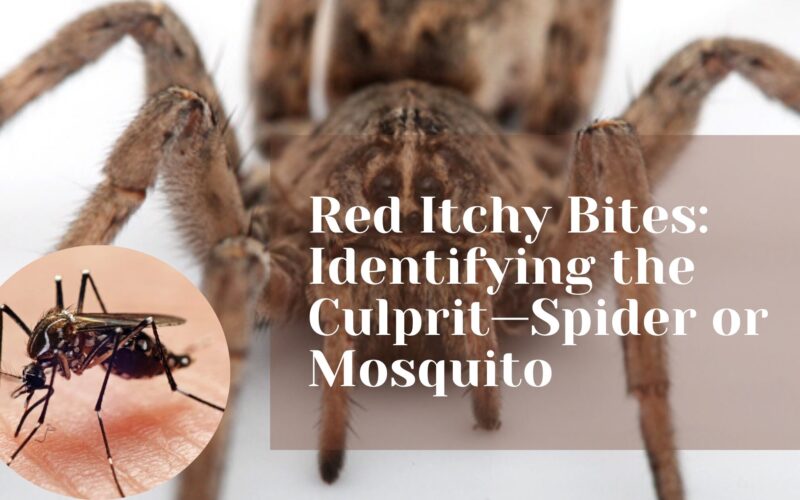Did you know the U.S. has about 200 types of mosquitoes? Worldwide, there are thousands more. These pests are known for their annoying, red, itchy bites. But they’re not the only ones, spiders can also bite and cause similar reactions.
It’s crucial to distinguish spider bites from mosquito bites. The right treatment and prevention depend on it. This article will help you spot the differences. It will also guide you on treating spider bites, handling mosquito-borne illnesses, and preventing bites.
Bite Marks And Symptoms: Spider Vs Mosquito
It can be hard to tell spider bites from mosquito bites because they look similar. But, looking closely at the bite marks and symptoms can help figure out what happened.
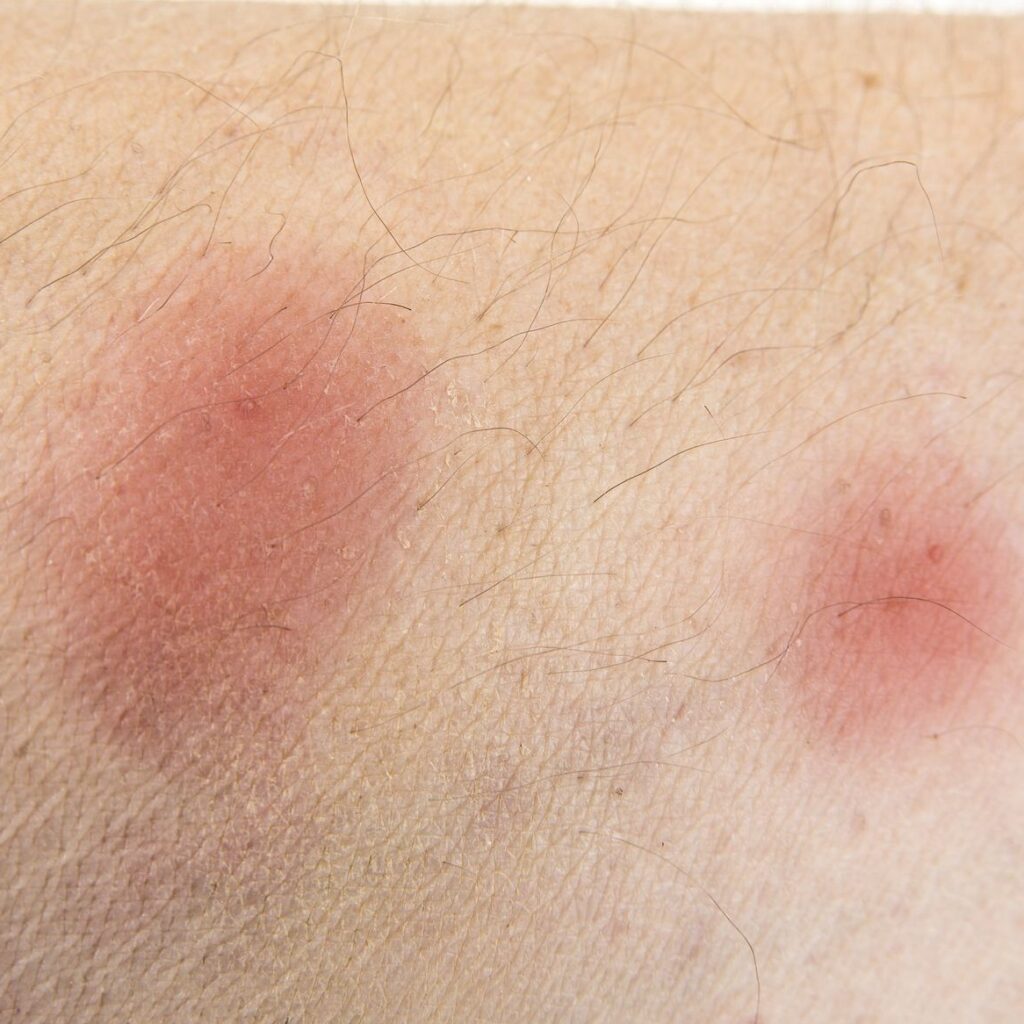
Spider Bite Characteristics
Spider bites usually leave two small punctures on the skin. They also cause redness and swelling. Most spider bites are mild, but some, like those from the brown recluse and black widow, can be serious.
They can cause necrotic lesions, muscle spasms, and nausea. If you think you’ve been bitten by a spider, see a doctor.
Mosquito Bite Characteristics
Mosquito bites look like small, round, puffy bumps. They are often found near the ankles, hairline, and other areas. At first, they don’t hurt, but they can become very itchy.
Some people get “skeeter syndrome,” which makes the bites swell up and hurt a lot. Mosquitoes can also spread diseases like West Nile and Zika virus.
Spider Bite Vs Mosquito Bite
It can be tricky to tell a spider bite from a mosquito bite. Both can make you feel itchy, swell, and turn red. But, there are some clear differences to spot the real cause.
First off, look at the bite marks. Spider bites usually show up as two small holes. Mosquito bites look like a single bump. Also, spider bites can be more serious, causing tissue death or nerve problems. Mosquito bites are mostly just itchy.
Think about where the bite is too. Spider bites often happen on skin that’s easy to see, like arms, legs, or the belly. This is because spiders live outside. Mosquito bites can pop up anywhere on your body since they can sneak into covered skin too.
Knowing these differences is key because the right treatment depends on the bite type. If it’s a spider bite from a dangerous spider, you might need a doctor. But, most mosquito bites can be fixed with home care.
Being able to tell spider bites from mosquito bites helps you handle your symptoms and avoid bigger issues. It also lets you tackle the root cause. Whether it’s getting rid of spiders or fighting mosquitoes, you can take action.
Venomous Spider Bites: Identifying And Treating
Most spider bites are mild and cause only slight discomfort. But, bites from venomous spiders like the black widow and brown recluse can be serious. It’s important to know the signs of a dangerous spider bite and how to treat it right away.
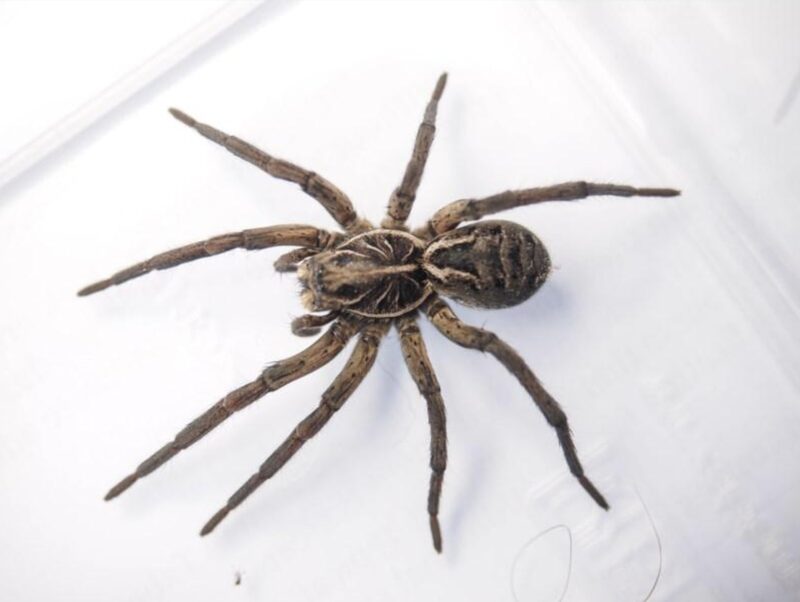
Signs Of A Venomous Spider Bite
Look out for signs like severe pain, swelling, and redness. Some bites may cause muscle spasms, tremors, and nausea. Black widow spider bites can lead to high blood pressure, muscle shaking, and trouble breathing. Brown recluse bites might cause skin lesions that don’t heal.
Immediate First Aid For Venomous Spider Bites
First, wash the bite area with soap and water. Then, use a cold compress to reduce swelling and ease pain. Don’t put any creams or ointments on the bite as they can trap the venom. Get emergency medical help right away, as you might need anti-venom treatment.
Quick action and proper first aid can greatly improve the outcome of a venomous spider bite. Always get medical help fast if you think you’ve been bitten by a dangerous spider.
Mosquito-Borne Diseases And Prevention
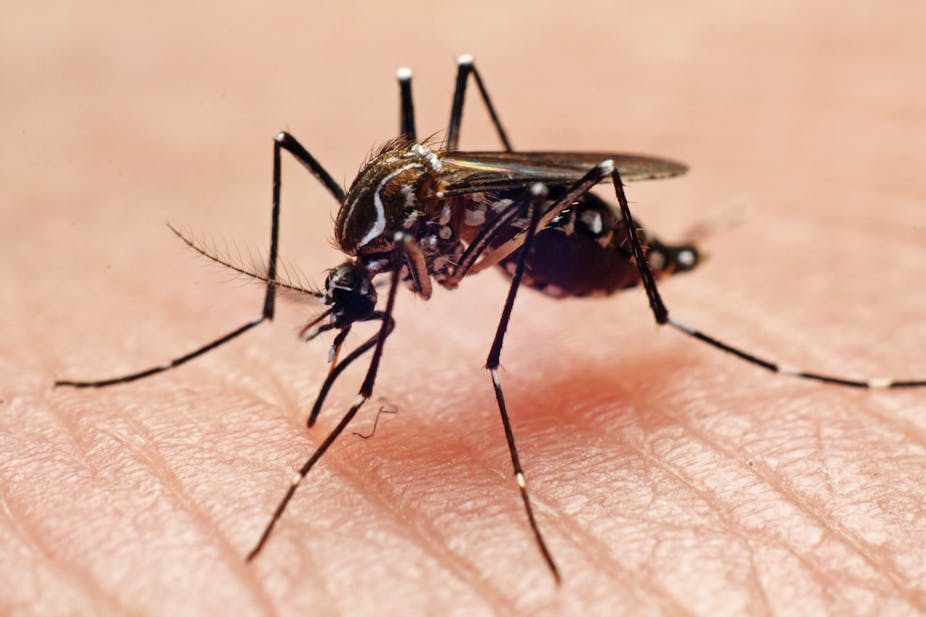
Mosquito bites can be more than just a nuisance. They can spread diseases like West Nile virus, Zika virus, and malaria. These diseases can cause symptoms such as fever, chills, and body aches. If you have these symptoms after a bite, see a doctor right away.
It’s important to protect yourself and your family from these illnesses. Use insect repellent, wear long clothes, and get rid of standing water where mosquitoes breed. Using repellents with DEET, picaridin, or oil of lemon eucalyptus can help keep mosquitoes away.
Keep your area clean and dispose of standing water to prevent mosquitoes. This includes birdbaths, gutters, and pet bowls. By doing this, you can lower your risk of getting mosquito-borne diseases and enjoy the outdoors more.
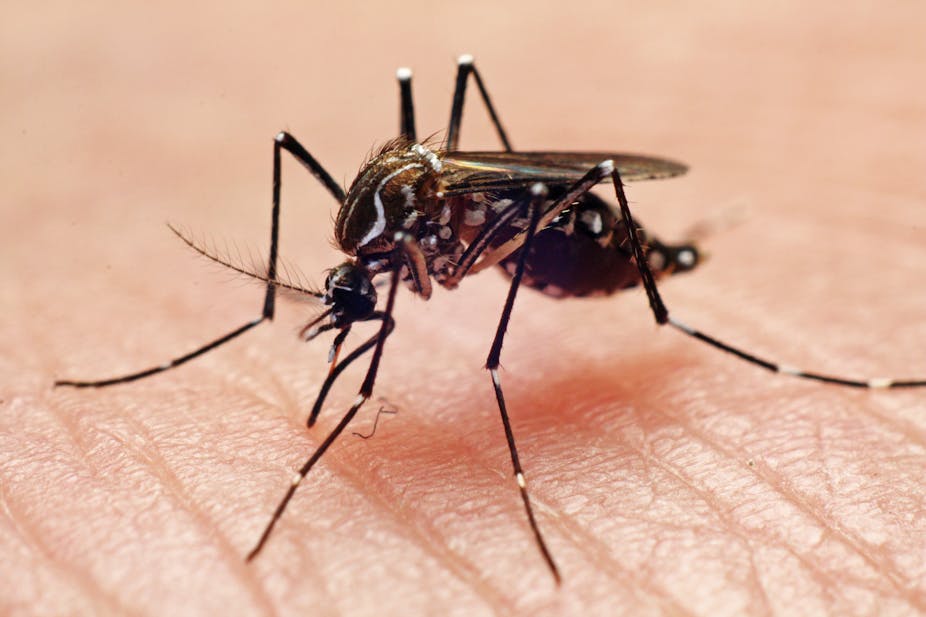
Always be careful and take steps to prevent bites, not just during peak season. Knowing the risks and how to prevent them can keep you and your loved ones safe from mosquito-borne illnesses.
Home Remedies For Mosquito And Spider Relief
Over-the-counter meds can help with bug bite symptoms, but natural remedies work too. These home treatments can ease itching and swelling. They make bug bites less uncomfortable.
Natural Anti-Itch Treatments
A cool compress can reduce swelling and ease itching. Calamine lotion or aloe vera gel also soothe bug bites. An oatmeal bath can ease itchiness all over the body.
Essential oils like peppermint, tea tree, and lavender can help too. They have anti-inflammatory and pain-relieving properties. You can apply them directly or mix with a carrier oil.
OTC Medications For Mosquito And Spider Bites
For worse mosquito and spider bite symptoms, over-the-counter medications can help. Antihistamines like cetirizine or loratadine reduce itching.
Hydrocortisone creams or oral corticosteroids lessen inflammation. Pain relievers like acetaminophen or ibuprofen can ease discomfort.
Always follow the dosage instructions and talk to a healthcare provider if symptoms get worse. Using both natural remedies and over-the-counter medications can help manage bug bite symptoms effectively.
Mosquito And Spider Bites Prevention Tips
Preventing bug bites is key to avoiding discomfort and health risks. By acting early, you can lower your chance of getting bitten by mosquitoes, spiders, and other insects. Here are some tips to help you prevent these bites.
Protective Clothing And Repellents
Wearing the right clothes can help keep bugs away. Choose long-sleeved shirts, pants, and socks when outside. Adding permethrin, an insecticide, to your clothes and gear gives extra protection against mosquitoes and ticks.
Using insect repellents with DEET, picaridin, or oil of lemon eucalyptus works well too. These repellents can be put on your skin and clothes to keep bugs away.
Environmental Precautions
Changing your environment can help prevent mosquito bites. Get rid of standing water near your home since mosquitoes breed there. Keep your lawn and garden tidy, and seal any openings that bugs might use.
By using personal protection and changing your environment, you can prevent mosquito and spider bites. This lets you enjoy the outdoors without worrying. Remember, stopping bugs from breeding and deterring them is key to staying healthy.
Conclusion
Spider bites and mosquito bites might look similar at first. But knowing the differences can help you figure out what happened and what to do next. Most bug bites are just annoying, but some spider bites and diseases from mosquitoes need quick medical help.
To stay safe outside, wear protective clothes, use bug spray, and manage your environment. This way, you can enjoy the outdoors without worrying about bug bites. It’s important to know what bug bite you have, watch for signs of a dangerous spider bite or disease from mosquitoes, and prevent these problems.
Whether you’re in nature, working outside, or just chilling in your backyard, being informed and careful can keep you safe. By understanding spider and mosquito bites, you can protect yourself and your family from their effects.
